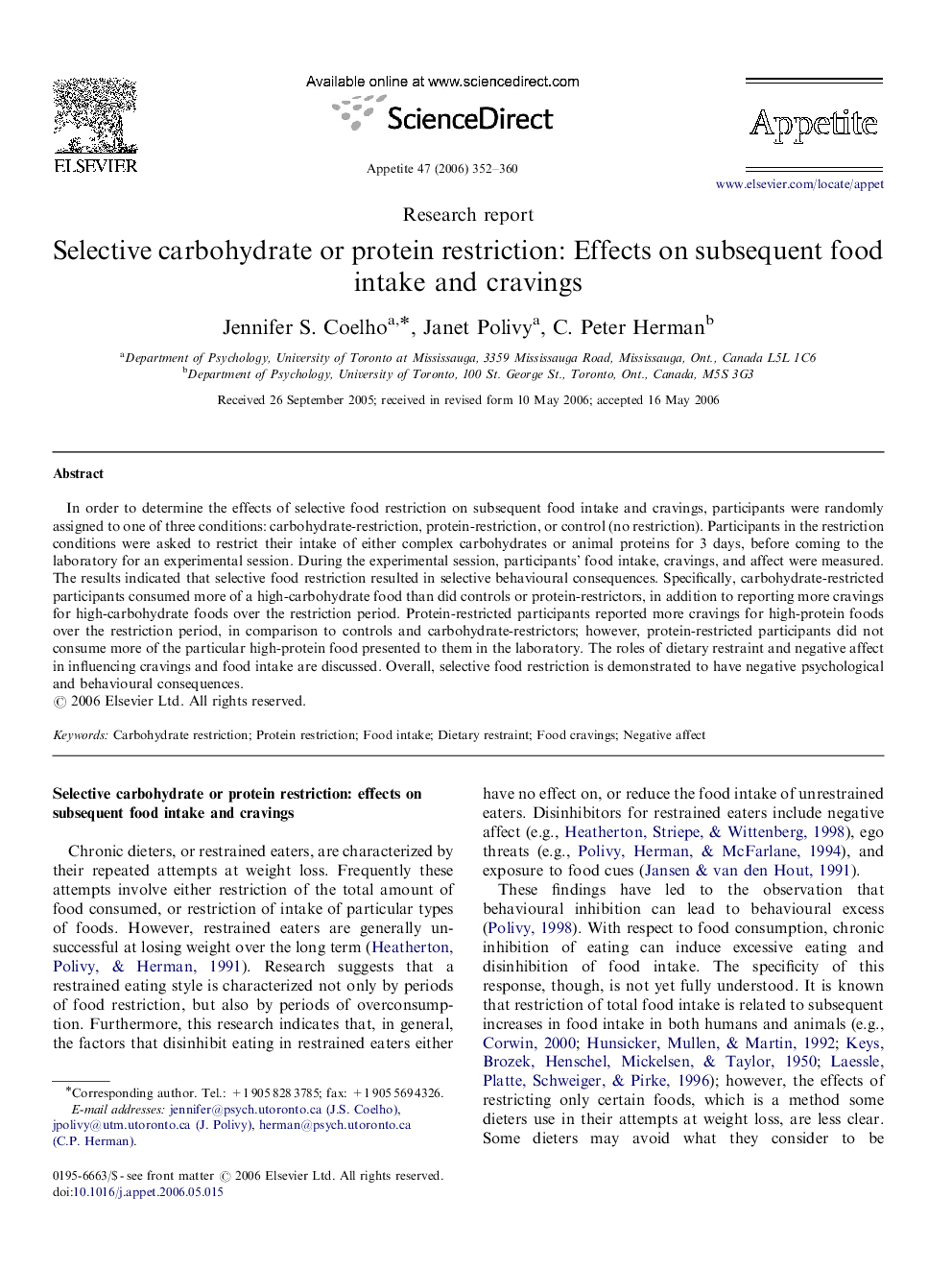| Article ID | Journal | Published Year | Pages | File Type |
|---|---|---|---|---|
| 941764 | Appetite | 2006 | 9 Pages |
In order to determine the effects of selective food restriction on subsequent food intake and cravings, participants were randomly assigned to one of three conditions: carbohydrate-restriction, protein-restriction, or control (no restriction). Participants in the restriction conditions were asked to restrict their intake of either complex carbohydrates or animal proteins for 3 days, before coming to the laboratory for an experimental session. During the experimental session, participants’ food intake, cravings, and affect were measured. The results indicated that selective food restriction resulted in selective behavioural consequences. Specifically, carbohydrate-restricted participants consumed more of a high-carbohydrate food than did controls or protein-restrictors, in addition to reporting more cravings for high-carbohydrate foods over the restriction period. Protein-restricted participants reported more cravings for high-protein foods over the restriction period, in comparison to controls and carbohydrate-restrictors; however, protein-restricted participants did not consume more of the particular high-protein food presented to them in the laboratory. The roles of dietary restraint and negative affect in influencing cravings and food intake are discussed. Overall, selective food restriction is demonstrated to have negative psychological and behavioural consequences.
